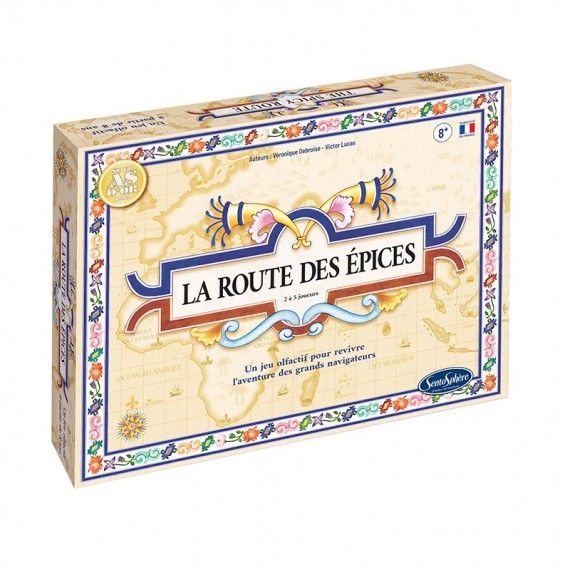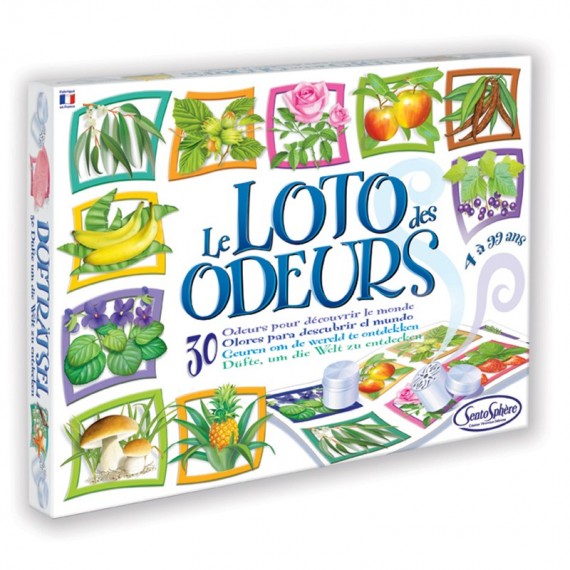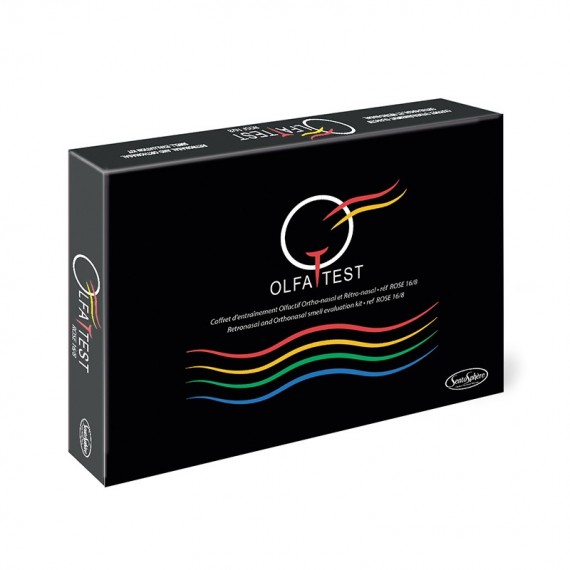Can't recognize a smell and think you have a bad sense of smell? You are surely mistaken because smell is a sense that is worked! Someone who is not used to recognizing smells may find it a difficult exercise but we guarantee that with a little practice, it can become child's play. Being able to smell a smell and being able to recognize it by putting a word on it are two very different things! Not being able to put a word on a smell does not mean that you do not perceive it.
Smell is closely linked to our memory and emotions!
When we smell an odor, it goes up our nose to our olfactory mucosa before reaching the olfactory bulb and different parts of the brain. During its journey, the smell passes by different areas of our brain related to emotions and memory, such as the hippocampus which has the function of creating and fixing memories! This is why our sense of smell has a privileged relationship with our memory and our emotions.
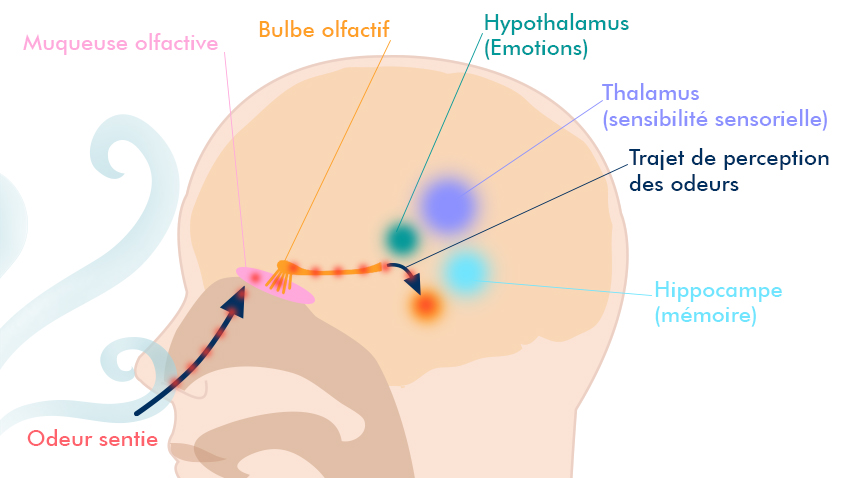
This is important because the identification of an odor is done through memory. A smell can therefore remind us of a season (the strawberries of summer), a person (the smell of lavender from your grandmother's closet), a dish, a shampoo, a place, etc. Automatically, this can help you make the connection and put a word on your olfactory sensation.
Did you know? The strength of the smells is amazing! For example, to calm a child who begins to go to the nursery, it is recommended that parents sleep with a blanket so that it soaks up their smell. Thus, it can be given to the child when it is necessary to console him from the temporary distance with his parents! Smelling their scent is sometimes enough to calm him down.
Discover now the different tips and exercises that we recommend to improve your odor recognition. For this, you can use one of our smell games such as the Lotto of Smells, Olfatest, Topscent or the Spice Route. All of them contain between 12 and 60 different smells that you will have available to train!
Discover our olfactory games:
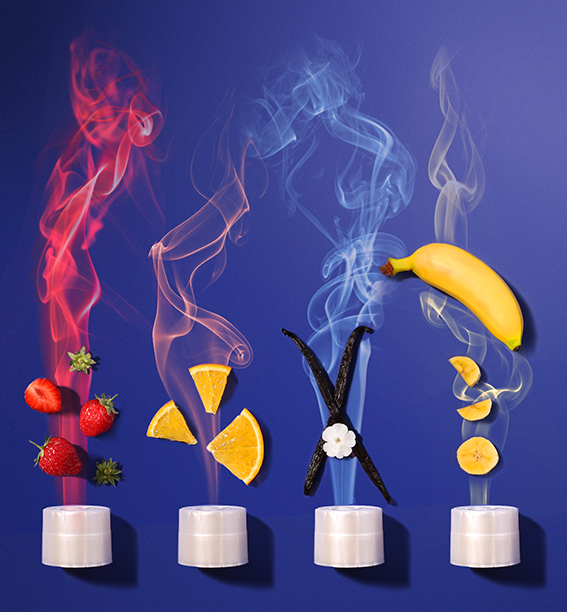
1. Learn how to categorize an odor
When you smell a smell, can you categorize it? is it sweet? Fruity? Wooded? Flower? etc.
For this first exercise, take the smell capsules from one of our games, smell them and try to classify them! There are no rules, it is up to you to determine the classification you want to make by grouping the smells according to common points that you identify: do these smells make you think of fruits? Flowers? Cleaning products? And so on.
The important thing is simply to be able to differentiate groups of odors. This training will allow you to compare them and start assigning them with characteristics such as floral, sweet or fresh notes.
For this exercise, you can also use elements that you have at home (spices, fruits, etc.), but it is interesting to be able to make a blind recognition thanks to our odor capsules.
2. Associate a smell with an image representing it
After trying to classify odors by grouping them into "groups" of odors, we will focus on odors individually. Take odor capsules and an illustrated card representing each odor. In general, our games provide visual representations.
Spread the illustrations in front of you, smell a smell capsule and try to identify it with this visual aid. There are so many possible smells that it will make it easier for you to recognize a smell that you may have only perceived.
Often, seeing an image can help name a smell because it appeals to memory. As we explained above, smell is the sense most related to memory, so boosting this connection can help you recognize a smell.
If even then you can't do it, or if you made a mistake, we can move on to the 3rd exercise!
3. Describe what this smell evokes for you
The sense of smell is the sense that has the most memory! Try to describe each of the sensations perceived for each capsule of smells. Adjectives to describe a smell are very personal and depend on our experience and memories...
Smells are like colors. They are full of nuances. In the same way that there are shades of green, there are multiple shades of "lemon".The smell of lemon may evoke for some the lemonade, a dish with fish, a slice of lemon in a tea, a lemon pie ... For others, it will evoke dishwashing liquid, a hand wipe or a detergent. This smell can also evoke abstract things such as freshness, acidity, summer, or a rising, sharp sensation...
Don't have any problem writing down how you feel; even if they don't evoke what you should smell, even if it annoys you that you can't associate the smell with something concrete and real, write to memorize that smell, in your own words. It is your experience that will allow you to find the words to discover it in a new light.
When you do the work of associating smells with keywords and writing them down, it helps to catalog them. In fact, making the link between your memory and the center of language will allow in a way to record a smell so that, later, you know how to name it.
So, make your memory and your emotions that surround the path of the smell work to find the words that, for you, characterize these smells. This exercise will train your brain to make the connection with your language center and will allow you to recognize a smell much more easily and quickly.
Not being able to name a smell is sometimes related to a lack of training between the perception center and language. To develop this plasticity of the brain, the exercise we have just detailed is perfect!
4. Train regularly
Little by little see if, with these exercises, you manage to perfect your sense of smell and strengthen your brain. Do not hesitate to contact the Sentosphère team to inform us of the evolution of your progress! See you soon and have fun!
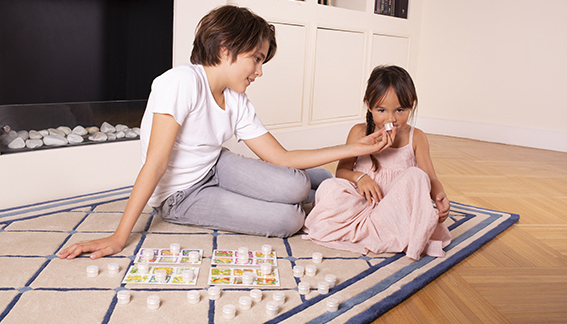
-
€45.00
-
€34.00
-
Product details€33.00
